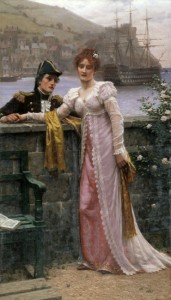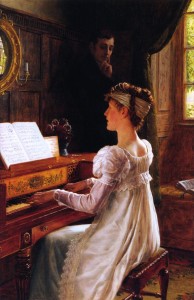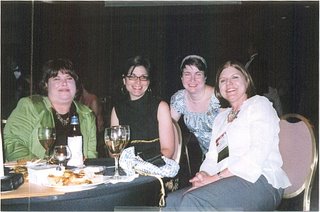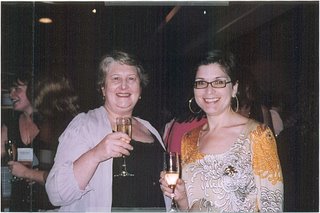 Last week on my Diane’s Blog, I mentioned the discussion on Dear Author titled We Should Let The Historical Genre Die.
Last week on my Diane’s Blog, I mentioned the discussion on Dear Author titled We Should Let The Historical Genre Die.
At the end of the blog Jane says:
I’m not going to launch a historical romance campaign. I think I’m actively looking for the historical romance genre to die. For Regency dukes to molder into dust. For dashing earls to be crushed. Only then can the genre reinvent itself. I don’t want to save the historical romance genre. I want it to die and from the ashes, maybe then, a new and fresh historical voices will arise unconstrained by both reader, editor and agent expectations.
Of the 122 comments, several remarked about being tired of Regency and blaming the “demise” of the Historical Romance on the fact that the vast majority are Regency. One commenter said:
I have tried writing Regency but, as you pointed out, there are no original plots and the readership for this period is so knowledgeable I wouldn’t dare get the slightest flick of a fan out of place!
 No original plots? (and I try so hard….)
No original plots? (and I try so hard….)
Other commenters complained about what we’ve discussed here many times, the “wallpaper” historical, one that puts the characters in costume but has them acting in 21st century ways. Can’t disagree with that personally, although I know some readers prefer this sort of Regency.
The discussion apparently began with a blog on All About Romance, asking Where Have All The Historical Romances Gone? with some of the same points made, especially in the comments.
Evangaline Holland joined the debate in her blog post, The Trouble With Historical Romance. In the comments she remarked that other romance genres ebb and flow with changing tastes and audiences, but she cited this parenthetical example:
(look at how quickly Harlequin’s contemporary romance lines shift and morph based on audience response, whereas Harlequin Historical–once in danger of being axed completely–shifts at a comparatively glacial pace).
I must remark that saying this about Harlequin Historical is a misconception. HH has never given up Westerns, even when other publishers did, and they’ve experimented with lots of different time periods and settings: Jeannie Linn’s Chinese historicals, Ancient Rome, Vikings, Irish Medevials, Amanda’s Elizabethans and more.
Suffice to say that I found all these discussions about historical romance very interesting. The various opinions about Regency Historical Romance was often daunting and discouraging–I also thought they were at least partially true.
 That little anxious mini-me who lives inside my brain was wailing, “What’s the use!” Her chin was on the floor and she was halfway to believing that nobody liked Regencies anymore.
That little anxious mini-me who lives inside my brain was wailing, “What’s the use!” Her chin was on the floor and she was halfway to believing that nobody liked Regencies anymore.
Until my dh and I went to Old Town Coffee Tea & Spice in Alexandria with a friend. We were there a long time, picking out lots of loose tea, so we were getting pretty chummy with the salesclerk, a woman in her 50s, I’d guess.
My dh asked her, “Do you read romance novels?” (I was as surprised as she was at the question. My dh is not usually my publicist!)
She responded, “Yes.” She paused for a few seconds. “But I only read Regencies.”
Next time we go, I’m bringing her a book!
So what do you think?
Do you think the Historical Romance genre should die so it can be resurrected into something better?
Do you think Regency plots are over done? If so, which ones?
Do you think the problem with Historicals is there is not enough diversity of time periods? If so, what time periods and settings would you like to see more of?








